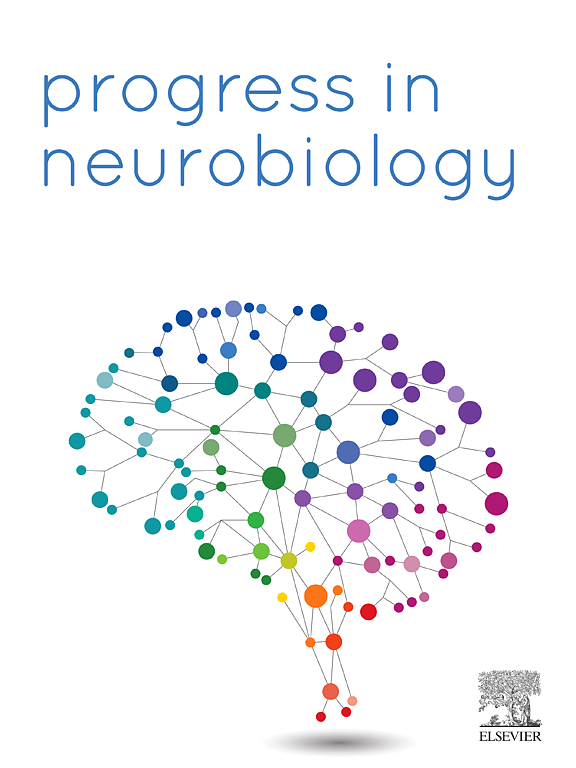NG2 细胞中的 CB1 受体可介导由 CANNABINOID 引起的功能性髓鞘再生。
IF 6.1
2区 医学
Q1 NEUROSCIENCES
引用次数: 0
摘要
据报道,许多神经病理学疾病都存在髓鞘稳态缺陷。研究表明,在脱髓鞘动物模型中,大麻素化合物能有效促进髓鞘再生。然而,这种作用是否主要依赖于对少突胶质细胞-髓鞘-NG2细胞的细胞自主效应仍不得而知。通过使用条件性遗传小鼠模型,我们在此发现位于 NG2 细胞上的大麻素 CB1 受体是脱髓鞘后少突胶质细胞分化和髓鞘再生所必需的。在毒素诱导的脱髓鞘后,NG2 细胞上的选择性 CB1 受体基因耗竭会破坏少突胶质细胞再生和功能性再髓鞘化,并加剧轴突损伤。通过药物阻断 RhoA/ROCK/Cofilin 通路,这些缺陷得到了挽救。相反,服用四氢大麻酚能促进野生型小鼠的少突胶质细胞再生和功能性髓鞘再形成,但不能促进 Ng2-CB1 基因缺陷小鼠的再生和功能性髓鞘再形成。总之,这项研究确定了 CB1 受体是再髓鞘化的重要调节剂,并支持大麻素促进神经系统疾病再髓鞘化的治疗潜力。本文章由计算机程序翻译,如有差异,请以英文原文为准。
CB1 receptors in NG2 cells mediate cannabinoid-evoked functional myelin regeneration
Defects in myelin homeostasis have been reported in many neuropathological conditions. Cannabinoid compounds have been shown to efficiently promote myelin regeneration in animal models of demyelination. However, it is still unknown whether this action relies mostly on a cell autonomous effect on oligodendroglial-lineage-NG2 cells. By using conditional genetic mouse models, here we found that cannabinoid CB1 receptors located on NG2 cells are required for oligodendroglial differentiation and myelin regeneration after demyelination. Selective CB1 receptor gene depletion in NG2 cells following toxin-induced demyelination disrupted oligodendrocyte regeneration and functional remyelination and exacerbated axonal damage. These deficits were rescued by pharmacological blockade of the RhoA/ROCK/Cofilin pathway. Conversely, tetrahydrocannabinol administration promoted oligodendrocyte regeneration and functional remyelination in wild-type but not Ng2-CB1-deficient mice. Overall, this study identifies CB1 receptors as essential modulators of remyelination and support the therapeutic potential of cannabinoids for promoting remyelination in neurological disorders.
求助全文
通过发布文献求助,成功后即可免费获取论文全文。
去求助
来源期刊

Progress in Neurobiology
医学-神经科学
CiteScore
12.80
自引率
1.50%
发文量
107
审稿时长
33 days
期刊介绍:
Progress in Neurobiology is an international journal that publishes groundbreaking original research, comprehensive review articles and opinion pieces written by leading researchers. The journal welcomes contributions from the broad field of neuroscience that apply neurophysiological, biochemical, pharmacological, molecular biological, anatomical, computational and behavioral analyses to problems of molecular, cellular, developmental, systems, and clinical neuroscience.
 求助内容:
求助内容: 应助结果提醒方式:
应助结果提醒方式:


